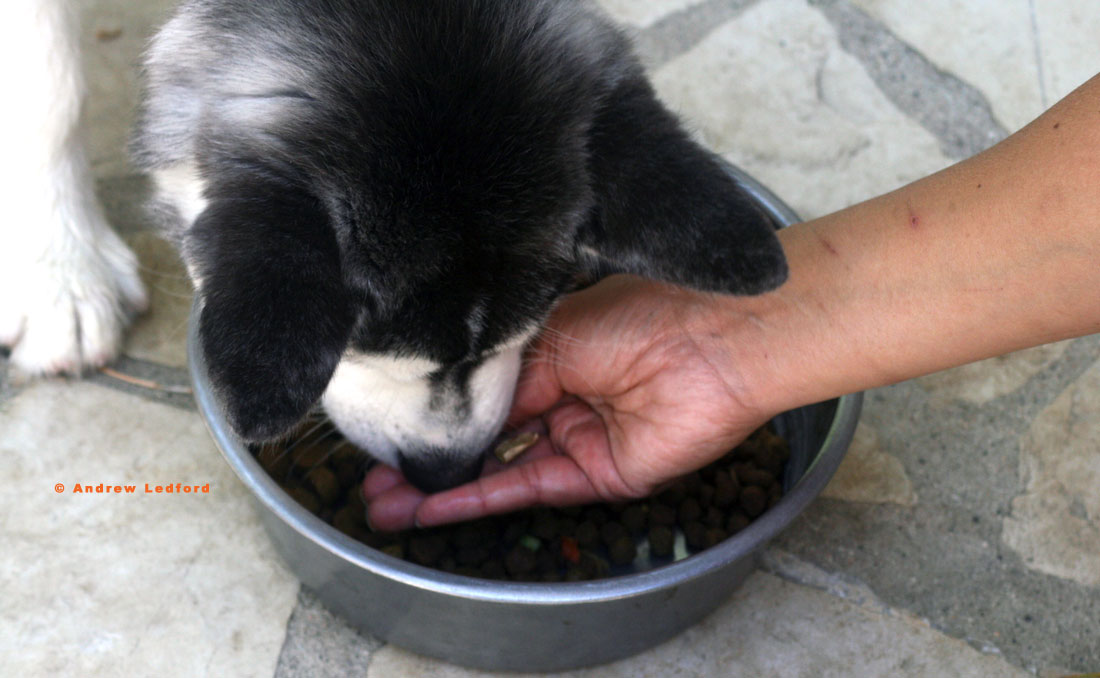Puppies and Training
The benefits of puppy training By Andrew Ledford
714-827-4058
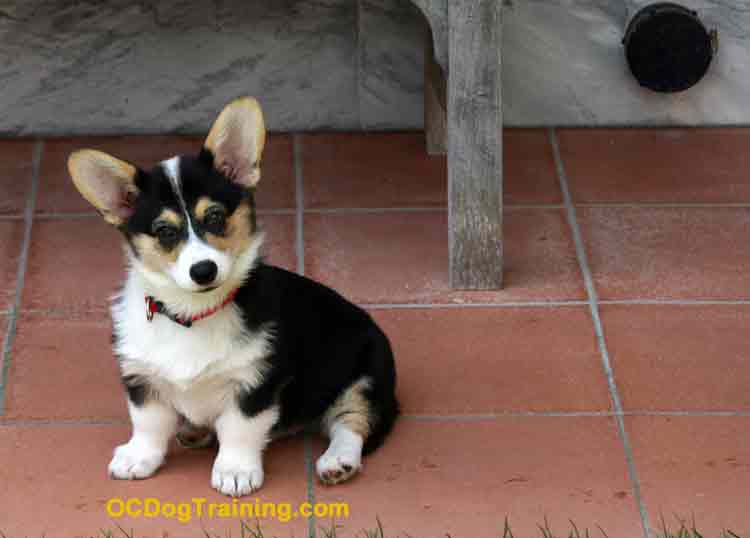
Puppy training is one of the most life enriching activities your puppy can take part in. It’s through informal and structured training that your puppy learns the social rules and cultural norms.
Puppy training and exposing the puppy to the right learning environment at the right time can make a huge difference in adult dog behavior
You’ll gain the most benefits if you start a puppy training program between the ages of 7 and 12 weeks. This is because dogs are most receptive to learning as they go through the middle and last part of the critical socialization period.
The main goal of puppy training is to prevent problems before they get started. Puppy training is comparable to insurance for good adult behavior. In-home puppy training addresses the special needs of young puppies.
Getting a puppy at the right age can be a very important decision. Puppies go through many critical stages that can affect how the puppy behaves as an adult.
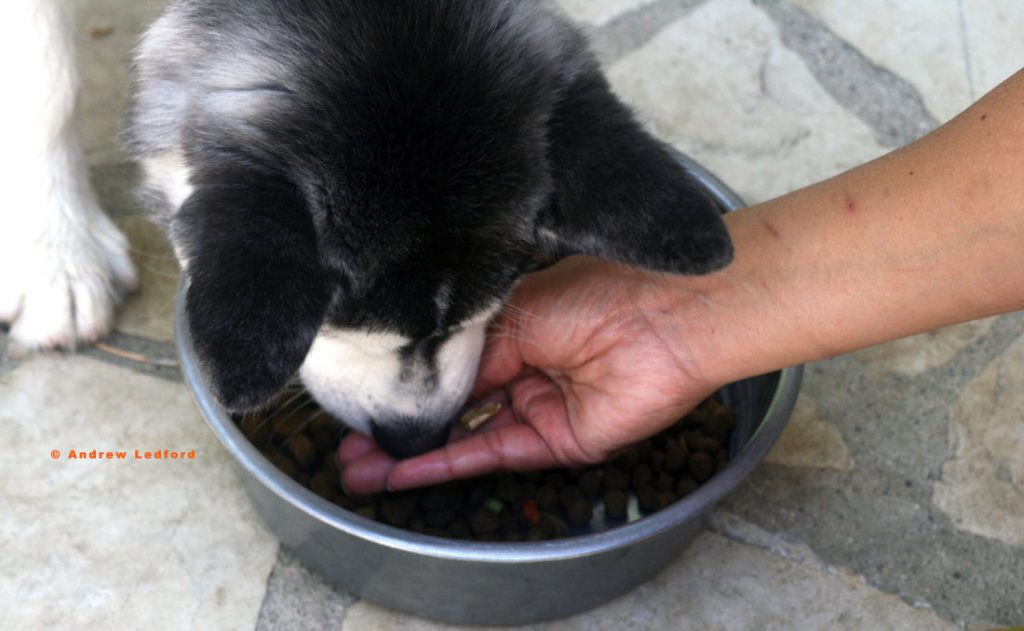
The best age to acquire a puppy is between the ages of 7 and 12 weeks. Puppies go through a socialization sensitive period between the ages of approximately 21 days to 16 weeks. This period is also called The Critical Socialization Period or The Learning Period or Stage. We can see that if you get your puppy at 12 weeks, you will only have four weeks (or less) to socialize the puppy to your lifestyle and the world in which it lives.
Socialization training is one of the biggest factors in preventing behavior problems associated with many kinds of stress. This stress is often displayed as fear. A major reason for aggression in adult dogs is fear.
This combination of fear and aggression can often be prevented by properly socializing a puppy while it’s going through the critical socialization period. Many of the things that a dog learns in this period will influence the rest of its life.
Seven weeks is the ideal time for a puppy to move into a new home and start bonding to new human owners. At seven weeks puppies are displaying about the same brain wave activity as an adult dog, thus indicating the capacity to learn complex behaviors by this age.
With information about critical periods, we can understand the best ages to start a training program and when to expect the development of certain behaviors.
It is suggested that a person should not get a puppy less than 7 weeks. Although getting a puppy as young as 6 weeks is often acceptable, getting a puppy less than 6 weeks can lead to problems. If there is no choice, such as the mother dying, then the young puppy needs extensive socialization with the new owner and will need to learn how to interact with other dogs. The biggest problems associated with separating a puppy from its mother and littermates too early is related to insecurity, which translates to fear.
Feral Puppies also referred to as street Dogs in Taiwan
Feral Puppies also referred to as street Dogs in Taiwan
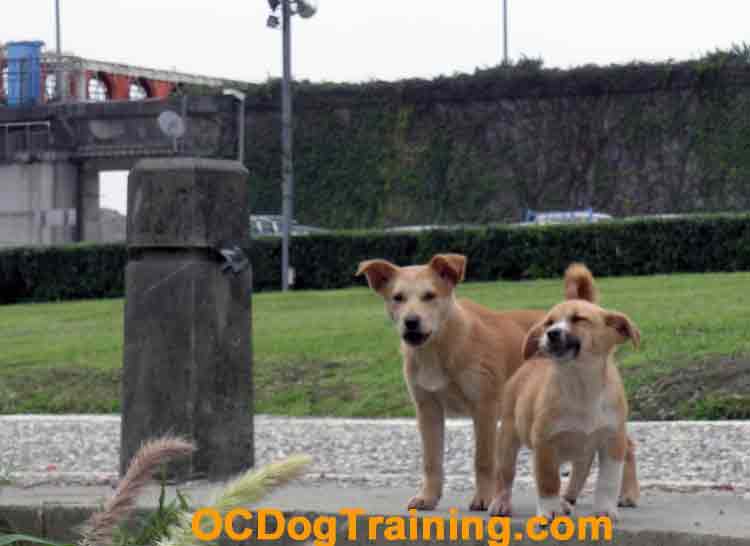
There is a big difference between a dog raised as a feral street dog and one raised as a pet.
Training your puppy involves a lot more than just teaching formal obedience commands. Your puppy is learning with every environmental interaction. Whenever possible you must ensure that your puppy is learning desirable behavior and not developing bad habits. Everything a young pup learns will influence its adult behavior. It’s up to the owner to cultivate a happy, healthy, and socially acceptable dog.
There are several life skills a civilized dog should possess. All pets are more desirable to live with if they’re potty trained, develop bite inhibition, and learn the command “Off” or don’t touch. Most dogs also need to learn how to greet people by not jumping. During puppyhood is when dogs learn what is okay to chew on and what is not. Chewing preferences developed as a puppy influence adult dog behavior. Most dogs are easier to manage and happier if they’re crate trained as puppies. Finally we need to socialize our young puppies to decrease the chance of fear based aggression.
Here is a list of behaviors every puppy should learn these area also some of the topics covered in my Puppy Guide
- potty training
- crate training
- bite inhibition
- appropriate chewing
- not jumping
- crate training
- sit
All of these are covered in my Puppy Guide eBook on Amazon
Some skills that are taught in my face to face puppy training classes are
- not to play bite
- to come when called
- not to dig
- to go to the puppies bed on command
- to respond to NO!
- to lay Down
- to walk on a loose leash by your side
- to Stay
- advanced touching and handling exercises
- barking prevention
- car manners
- yard manners
Potty Training Labrador Retriever Puppy To Go On Command. The lessons your puppy learns will make adult behavior more reliable and give you a foundation for correcting inappropriate adult behavior.
Potty Training Labrador Retriever Puppy To Go On Command. The lessons your puppy learns will make adult behavior more reliable and give you a foundation for correcting inappropriate adult behavior.
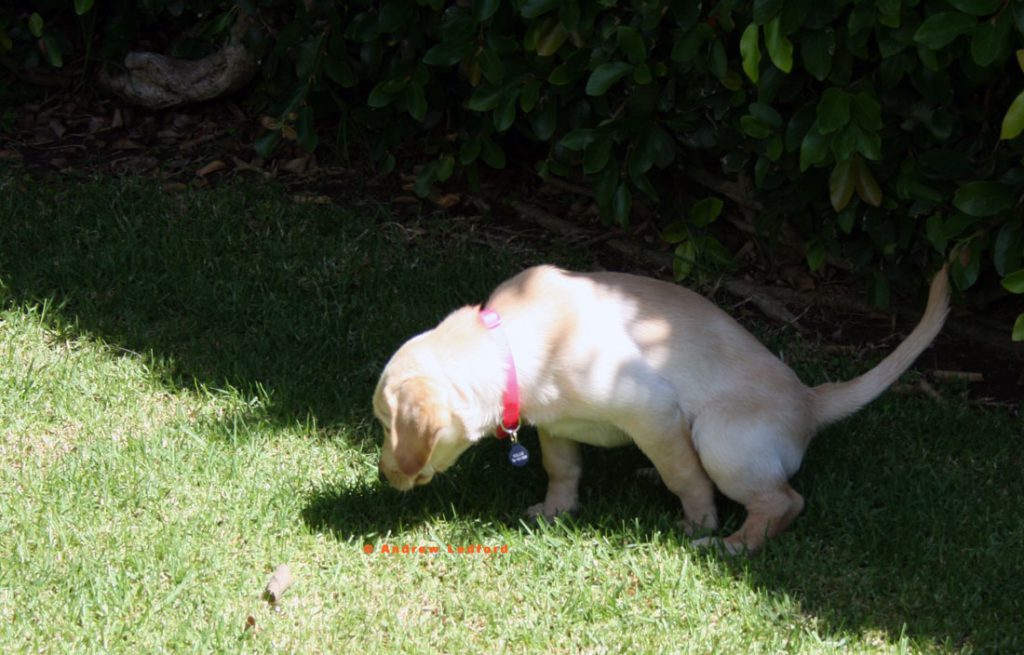
Call 714-827-4058 today to get more information about training your puppy or dog.
We provide training services to all of Orange County, Long Beach, and the San Gabriel Valley. OC Dog Training conveniently offers customized In home training to a large portion of Southern California’s most dog friendly communities
Andrew Ledford

